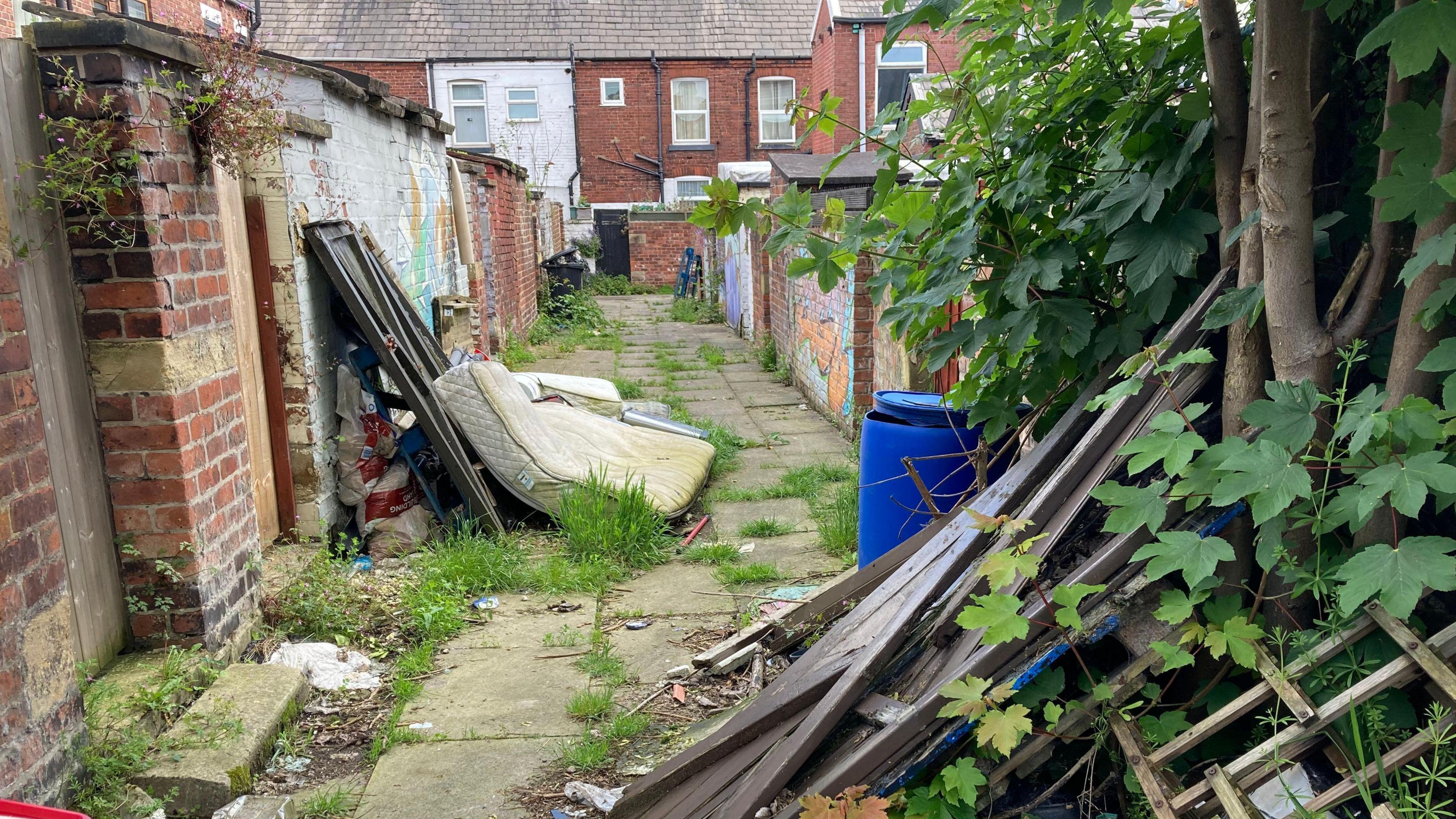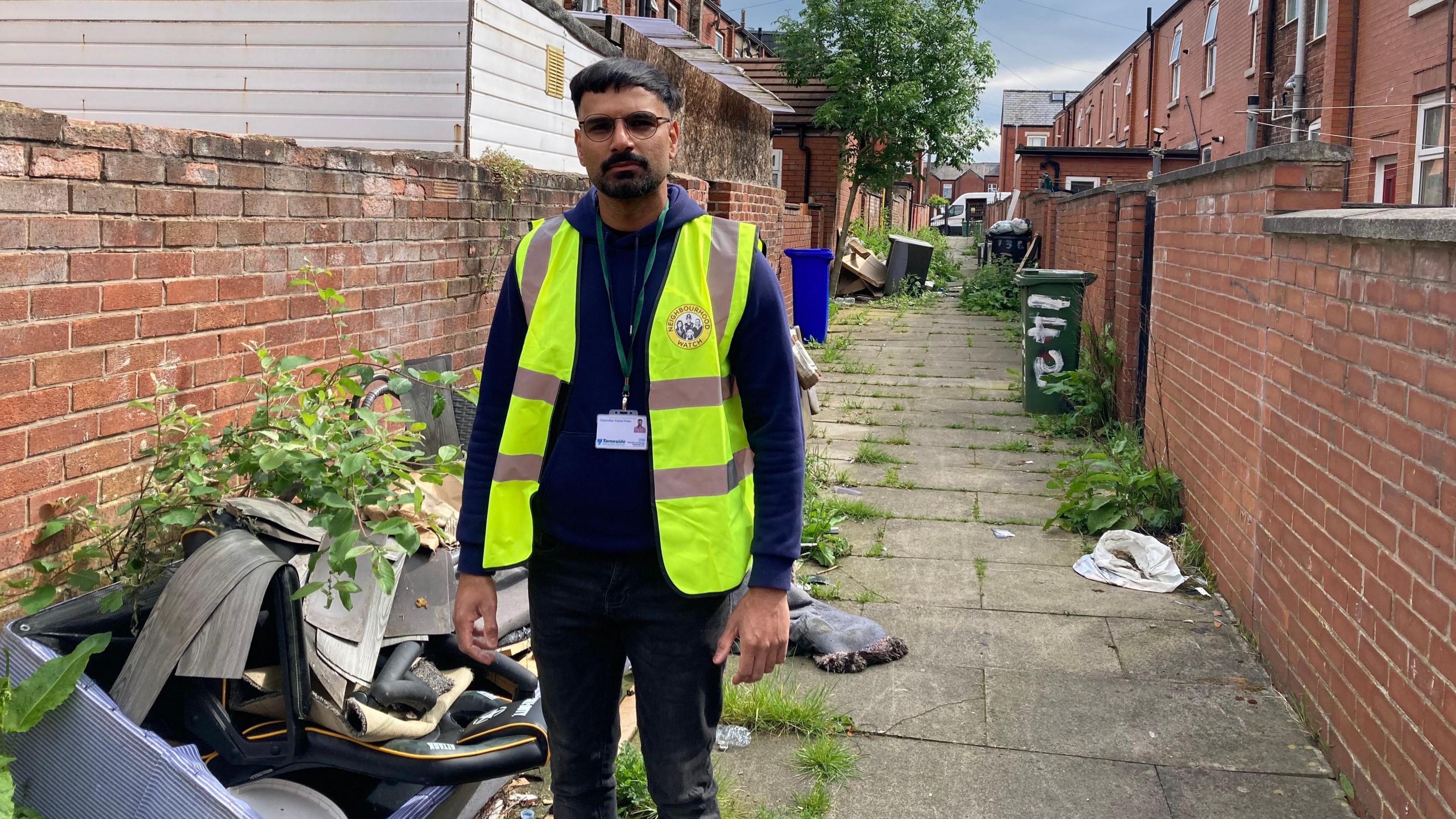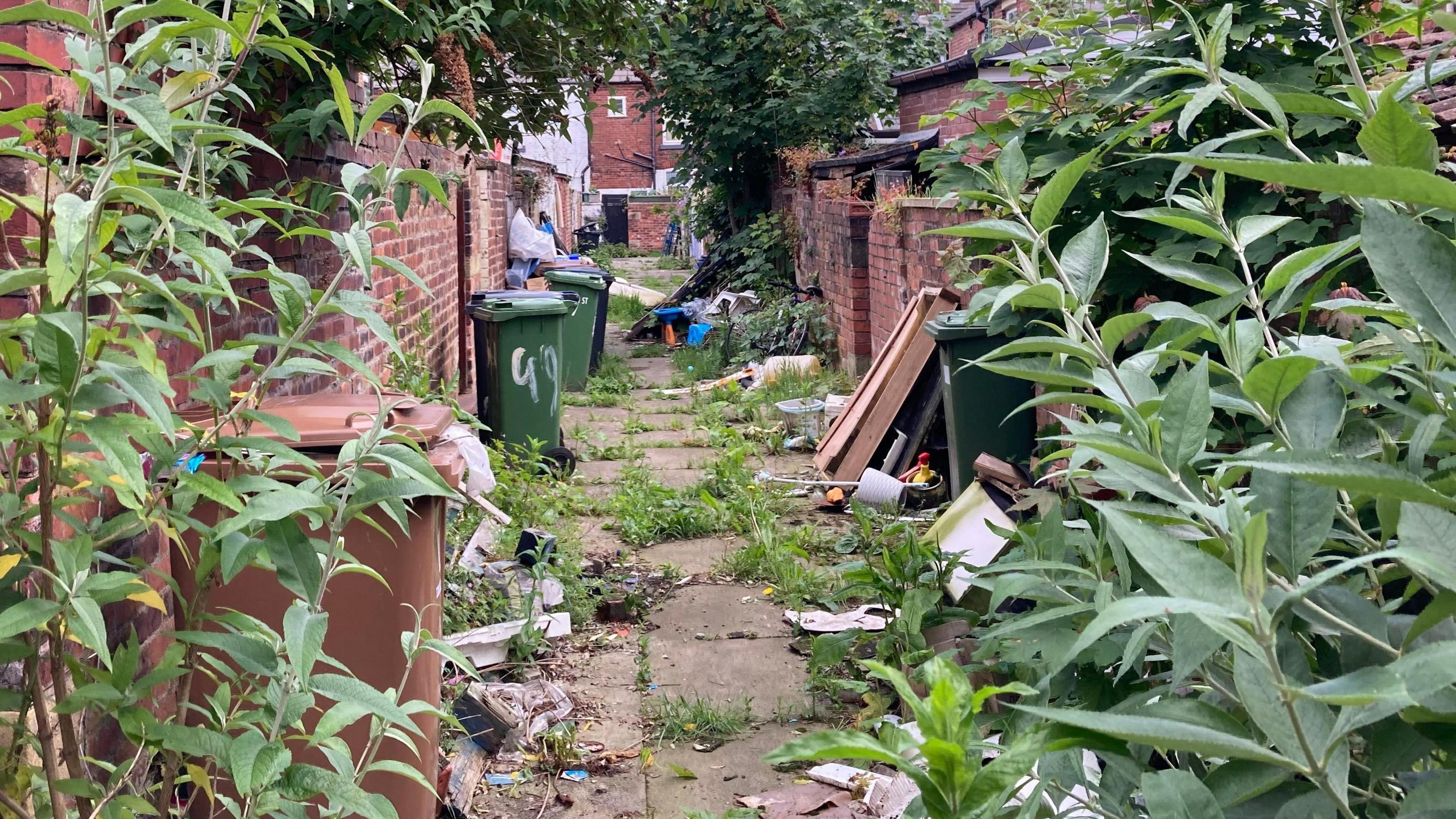Overflowing bins and fly-tipping blight community

Fly-tipping in an alley behind houses in Ashton-under-Lyne
- Published
Residents and shopkeepers have said fly-tipping and overflowing bins are blighting their neighbourhood.
People living in the St Peter's area of Ashton-under-Lyne complain that bin collections are being missed by the council, which is adding to the problem.
Shopkeeper Muhammad Zaid said his bin had not been collected for over a month.
Tameside Council said it emptied 42,000 bins a day, and "the vast majority [of them] on time".
Mr Zaid said: “Fly-tipping is a huge problem here as well as littering from what I can see already.
"We clean up outside the shop every day.
"Cleaning trucks from the council do come, but only once a month."

Councillor Kaleel Khan said fly-tipping and drug problem blight the area
Resident Abdull Kuiyun said he regularly had to clean up the alleyway behind his house, which he said was "rat infested".
He added: "When the gates are left open people just come in and dump stuff.
"People just don’t care.”
Independent councillor Kaleel Khan said when bin collections were missed, people had to put rubbish into their other bins.
He said the council would then refuse to take them because they were "contaminated".
Mr Khan said household waste bins were often too small to hold all the waste created by large families.
A council spokesman said the authority was out investigating fly-tipping incidents every day.
They added: "With regards to fly-tipping, residents have a legal duty to dispose of their waste responsibly and there is no excuse for fly-tipping, it is disrespectful to the local community and environment."
'Children need help'

An alley littered with rubbish
Mr Khan said antisocial behaviour was also a problem in the area, with empty nitrous oxide - or laughing gas - cannisters often left in the streets.
"There is nothing for kids to do," he said.
"They are bored and full of energy.
"It is easy to get kids to transfer drugs from A to B and pay them off because they are making free money.
"The children themselves are asking for help, they want facilities that encourage them to come out of doing antisocial behaviour or knife crime."
Ch Insp Dave Henthorne of Greater Manchester Police said public space protection orders were used to help cut crime and antisocial behaviour in the area with a dedicated neighbourhood beat officer and PCSOs in the town centre.
He said: "These officers and staff have extensive knowledge of the area, businesses, and people within it, and regularly patrol and engage with the community, responding to incidents quickly as they arise."
Listen to the best of BBC Radio Manchester on Sounds and follow BBC Manchester on Facebook, external, X, external, and Instagram, external. You can also send story ideas to northwest.newsonline@bbc.co.uk, external